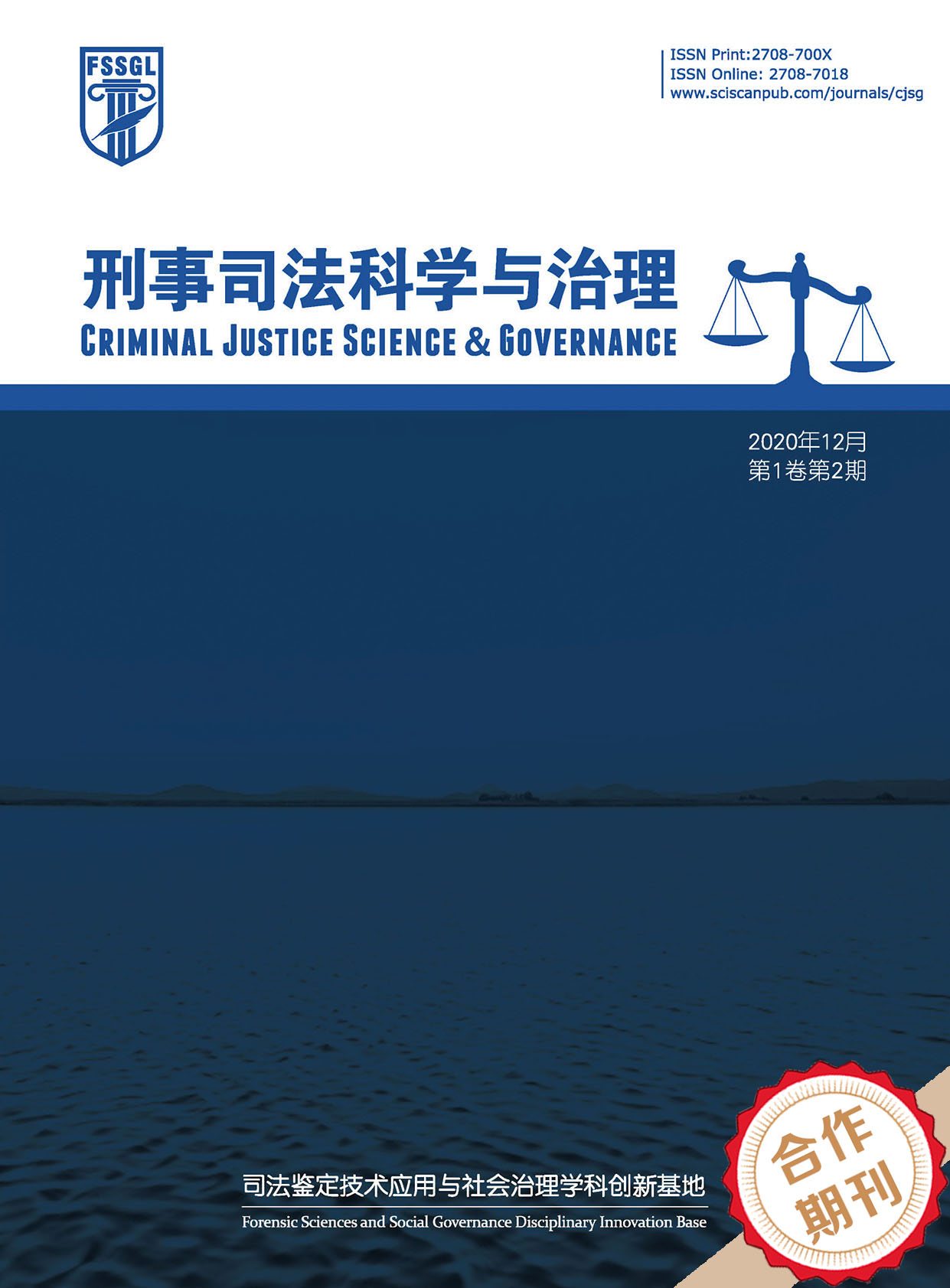Criminal Justice Science & Governance
ISSN Print:2708-700X
ISSN Online:2708-7018
Contact Editorial Office
Subscribe to the latest published information from SCISCAN
重大疫情下社会治理创新面临的机遇、 挑战和对策
Opportunities, Challenges and Countermeasures of Social Governance Innovation under Major Epidemic Situation
- Authors: 徐汉明¹²
-
Information:
1. 中南财经政法大学,武汉; 2. 司法鉴定技术应用与社会治理学科创新基地,武汉
-
Keywords:
Public health; Emergency management; Social governance公共卫生; 应急管理; 社会治理
- Abstract: The “New Coronary Pneumonia” epidemic has had a major impact on our country’s economic and social fields. It has put forward urgent requirements and severe challenges for improving our country’s social governance system, innovating social governance models, optimizing institutional mechanisms, and transforming methods. The judicial appraisal and social governance innovation team closely track and pay attention to the practice progress and theoretical resource requirements of epidemic prevention and control, study the practice and theoretical difficulties of social governance modernization in the context of major epidemic situations, provide expert advice and special research reports, and obtain major strategic achievements provided intellectual support and played a significant role in the high-end decision-making of think tank services. Anti-epidemic practices have exposed the problems of institutional obstacles, institutional difficulties, and security constraints in China’s public health emergency management system and management capabilities. The three major issues of emergency management are the rule of law system and rule capacity, grassroots governance system and capability, and public health law. “System” and the inconsistency and mismatch between the public health and safety national education system and the response to major epidemics. In the future, we should improve the rule of law system for public health emergency management through legislation and law revision, rationalize the authority and responsibility allocation of each subject in epidemic prevention and control; stimulate the vitality of the grassroots social governance system; incorporate public health law into the second-level disciplines of law and in this way, it promotes the construction of related discipline systems, academic systems, and discourse systems. Public health safety education is included in the scope of national education, thereby promoting the modernization of public health emergency management systems and management capabilities. “新冠肺炎”疫情对我国经济社会各领域产生了重大影响,对完善我国社会治理体系, 创新社会治理模式、优化体制机制、变革方式方法提出了急迫要求和严峻挑战。司法鉴定与社 会治理创新团队密切跟踪、关注疫情防控的实践进展和理论资源需求,研究重大疫情背景下社 会治理现代化实践和理论难题,提供专家咨政建言和专题调研报告,为疫情防控取得重大战略 成果提供了智力支持,发挥了智库服务高端决策的显著作用。抗疫实践暴露出我国公共卫生应 急管理体系和管理能力存在体制性障碍、机制性困扰、保障性束缚的问题,应急管理法治体系 和法治能力、基层治理体系和治理能力、公共卫生法学“三个体系”及公共卫生安全国民教育 体系与重大疫情应对之间不协调、不匹配等矛盾。未来,应通过立法与修法并举的方式完善公 共卫生应急管理法治体系,理顺疫情防控中的各主体的权限、职责配置;激发基层社会治理体 系活力;将公共卫生法学纳入法学二级学科并以此推动与之相关的学科体系、学术体系、话语 体系建设;将公共卫生安全教育纳入国民教育范畴,从而推进公共卫生应急管理体系和管理能 力现代化。
- DOI: https://doi.org/10.35534/cjsg.0101002
-
Cite:
徐汉明.重大疫情下社会治理创新面临的机遇、挑战和对策[J].刑事司法科学与治理,2020,1(1):30-41.
https://doi.org/10.35534/cjsg.0101002
















